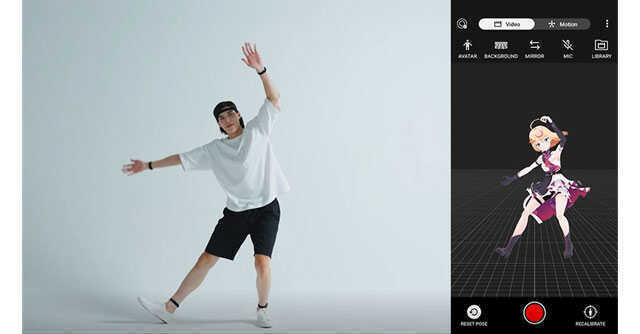
Sony’s Mocopi system can replicate real-world body movements in metaverse


Sony has launched a motion capture system, called mocopi, that uses sensors for different parts of the body to replicate real-world movements of a person in virtual reality (VR) and the metaverse.
The system includes six body sensors for the head, hip, wrists, and ankles. Each sensor weighs just 8 grams and uses a velcro band or clip to secure it to the body parts. Users can connect mocopi to any smartphone over Bluetooth and then use third-party apps to create videos of a digital avatar.
The entire set will be available through Sony’s online stores in late January 2023 at 49,500 Yen (approx ₹29,032).

Full body tracking in virtual reality is not new. Several tethered VR headsets for PCs such as the HTC Vive now support motion-tracking sensors that can be worn on the wrist and ankle to replicate real-world body movement with more accuracy in a virtual environment.
Mocopi brings similar capabilities to standalone VR headsets. Sony said that users can use the sensor to control their avatars and their actions in real-time in the virtual world. Sony said that it will release a software development kit (SDK) in December to integrate data generated through mocopi into different metaverse platforms. Sony also said that it is looking to partner with more companies that want to take advantage of it.
VRChat Inc and Hikky Inc are some of the companies that have announced a partnership with Sony for mocopi.

“VRChat has led the industry in the area of full tracking with VR headsets for PCs. With the introduction of mocopi, we are delighted to be able to offer the same functionality for standalone VR headsets. In combination with mocopi, we want users of all headsets to fully experience VRChat's full tracking capabilities,” said Jesse Jordley, chief technology officer and co-founder of VRChat Inc.
Several companies that are making solutions for VR and mixed reality (MR) platforms are also working on wearable devices that can mimic actual body movements in the metaverse.
For instance, Facebook-parent Meta's Reality Labs is working on a haptic glove, which can accurately understand and reflect the wearer’s hand movements. It can also generate a range of complex sensations such as pressure, texture, and vibration allowing users to feel an object in virtual reality.

